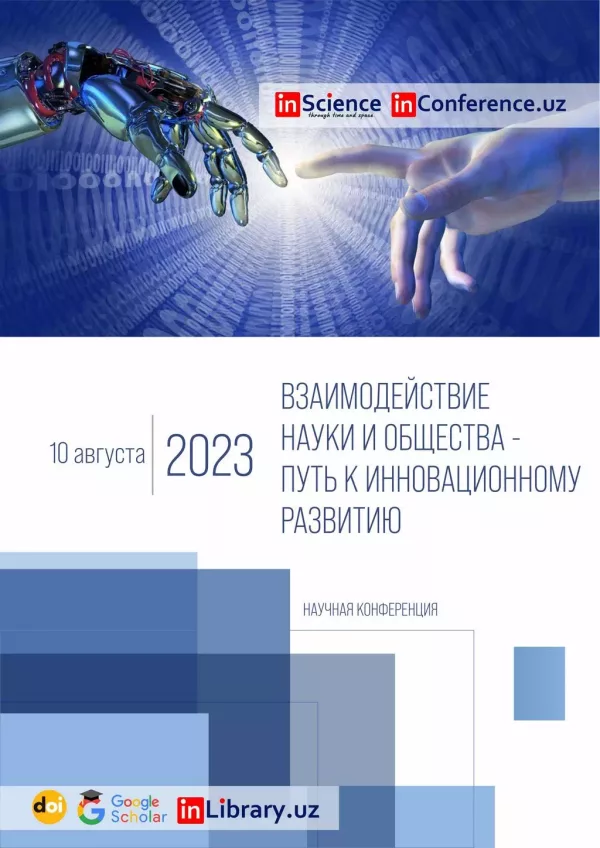DOI
https://doi.org/10.47689/2181-1415-vol2-iss4/S-pp598-606Keywords
Communication competence / information and communication technologies / electronic educational resources (EER) / teaching foreign languages / online entertainment platforms / Internet resourcesAbstract
In the modern world in the era of universal informatization and globalization of computer technologies, special attention is paid to raising the status of a foreign language as a communicative means, due to such factors as the expansion of economic, political, diplomatic cultural ties between countries, the development of mass communication, interstate integration in the field of education and science. ... Along with this, the requirements for the level of language training of future personnel in many areas of activity are also increasing. In such large countries as Russia, Great Britain, USA, Japan, etc. special attention is paid to the problems of improving the foreign language competence of students of higher educational institutions as future specialists in various industries. At the same time, the issues related to the professional skills of specialists (World Skills International), the educational system in the professional sphere and the assessment of the language competencies of students are sufficiently highlighted. In this regard, it is imperative to note the important role of information and communication technologies, the implementation of which in the process of teaching a foreign language is inevitable and is an object of international research. Today, the high level of technical equipment in educational institutions creates a stable basis for the successful implementation of ICT in the educational process. The use of electronic educational resources contributes to the disclosure of the potential of unlimited learning opportunities and has a positive effect on the formation of foreign language communicative competence of students, providing an opportunity to reveal the socio-cultural features of the language in full and to obtain reliable information on certain issues. Electronic resources can serve as a basis for creating an information-subject environment and contribute to self-education of students, satisfying their professional and personal interests and needs. The use of educational electronic resources is aimed primarily at the formation of students' communicative competence, as well as at the development of communicative-cognitive skills to carry out the correct search and selection, analyze and synthesize the information received.
Downloads
References
Common European Framework of Reference for Languages: Learning, teaching, assessment. Co-operation. Education Committee. Modern Languages Division, Strasbourg. Cambridge University Press, 2010.
Аврорин В.А. Проблемы изучения функциональной стороны языка (к вопросу о предмете социолингвистики). Л., 1975
Беликов В.И., Крысин Л.П. Социолингвистика. М., 2000
Бобрикова О.С. Формирование социолингвистической компетенции будущих переводчиков. // АВТОРЕФЕРАТ диссертации на соискание ученой степени кандидата педагогических наук, Тула, 2014, с. 15
ГОС. Постановление кабинета министров республики Узбекистан об утверждении государственного образовательного стандарта по иностранным языкам системы непрерывного образования, 2013.
Диахроническая социолингвистика. Отв. ред. В.К.Журавлев. М., 1993
Закон Республики Узбекистан "ОБ ОБРАЗОВАНИИ". Date Views 03.05.2021 lex.uz/ru/docs/5013009.
Постановление Кабинета Министров Республики Узбекистан «Об утверждении государственного образовательного стандарта по иностранным языкам системы непрерывного образования». Date Views 03.05.2021 lex.uz/docs/2165724.
Постановление Президента Республики Узбекистан “О мерах по дальнейшему совершенствованию системы изучения иностранных языков” Date Views 03.05.2021 lex.uz/docs/2126030.
Рисқулова К.Д. Система формирования социолингвистической компетенции будущих учителей английского языка.// Автореферат докторской (DSс) диссертации по педагогическим наукам, Ташкент, 2017, 64 с.
Социальная и функциональная дифференциация литературных языков. Отв. ред. М.М.Гухман. М., 1977
Социолингвистические порталы, сайты и проекты, Статьи и публикации по социолингвистике. Date Views 03.05.2021 filologia.su/sociolingvistika.
Хаймс, Делл. Компетентность и успеваемость в лингвистической теории. Овладение языком: модели и методы. Лингвистическая компетенция, 1971.–Электронный ресурс: https://ru.qaz.wiki/wiki/Linguistic_competence
Хомский, Ноам. Аспекты теории синтаксиса. Кембридж, Массачусетс: MIT Press. Лингвистическая компетенция, 1965.- Электронный ресурс: https://ru.qaz.wiki/wiki/Linguistic_competence
Швейцер А.Д., Никольский Л.Б. Введение в социолингвистику. М., 1978
Downloads
104 113Published
How to Cite
Issue
Section
License
Copyright (c) 2021 Лола Абдуллаева

This work is licensed under a Creative Commons Attribution 4.0 International License.




















